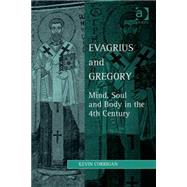Evagrius and Gregory: Mind, Soul and Body in the 4th Century
, by Corrigan,Kevin- ISBN: 9780754616856 | 0754616851
- Cover: Hardcover
- Copyright: 10/28/2009
Evagrius of Pontus and Gregory of Nyssa have either been overlooked by philosophers and theologians in modern times, or overshadowed by their prominent friend and brother (respectively), Basil the Great. Yet they are major figures in the development of Christian thoughts in late antiquity and their works express a unique combination of desert and urban spiritualities in the lived and somewhat turbulent experience of an entire age. They provide a significant link between the great ancient thinkers of the past Plato, Aristotle, the Stoics, Clement and others and the birth and transmission of the early Medieval period associated with Boethius, Cassian and Augustine.This book makes accessible, to a wide audience, the thought of Evagrius and Gregory on the soul, in the context of ancient philosophy/theology and the Cappadocians generally. Corrigan argues that in these two figures we witness the birth of new forms of thought and of empirical science in a new key. Evagrius and Gregory are no mere receivers of a monolithic pagan and Christian tradition, but innovative, critical interpreters on the range and limits of cognitive psychology, the soul-body relation, reflexive self-knowledge, personal and human identity and the soul's practical relation to goodness in the context of human experience and divine self-disclosure. This book provides a critical evaluation of their thought on these major issues and argues that in Evagrius and Gregory we see the important integration of many different concerns that later Christian thought was not always able to balance including: mysticism, asceticism, cognitive science, philosophy, and theology.






